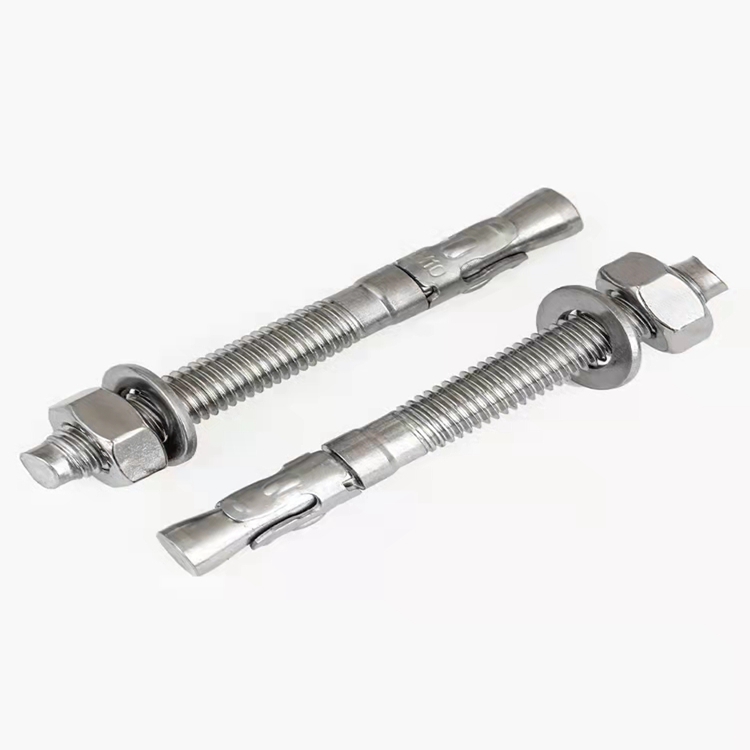DIN 981 Locknuts - High-Strength, Corrosion-Resistant Solutions
May . 14, 2025 11:20 Back to list
DIN 981 Locknuts - High-Strength, Corrosion-Resistant Solutions
- Overview of DIN 981 Locknuts and Industry Applications
- Technical Advantages and Material Innovation
- Market Data and Growth Projections
- Leading DIN 981 Locknuts Suppliers: Comparative Analysis
- Customization Options for Industrial Needs
- Real-World Applications Across Industries
- Why Partner with DIN 981 Locknuts Specialists?

(din 981 locknuts)
Understanding DIN 981 Locknuts and Their Industrial Significance
DIN 981 locknuts, standardized under Deutsches Institut für Normung (DIN), are precision fasteners designed for high-stress applications in aerospace, automotive, and heavy machinery. These components ensure vibration resistance and load distribution, with global demand growing at 5.8% CAGR (2023-2030). Manufacturers must adhere to ISO 898-2 standards, achieving torque values between 12-150 Nm depending on material grades.
Engineering Excellence in Locknut Production
Premium DIN 981 locknuts factories utilize cold forging processes that enhance grain structure by 40% compared to conventional machining. Surface treatments like zinc-nickel plating (15-25μm) provide 1,200+ hours of salt spray resistance. Leading producers implement automated optical inspection (AOI) systems, reducing defect rates below 0.02% across batches.
Market Dynamics and Competitive Landscape
The global locknut market reached $2.3 billion in 2023, with DIN-compliant products capturing 38% share. Regional analysis shows 52% of demand originates from European manufacturing hubs, while Asia-Pacific markets demonstrate 7.9% annual growth. Supplier benchmarking reveals:
| Supplier | Production Capacity | Certifications | Lead Time |
|---|---|---|---|
| Manufacturer A | 8M units/month | ISO 9001, IATF 16949 | 14 days |
| Supplier B | 5.2M units/month | AS9100D, ISO 14001 | 21 days |
| Factory C | 12M units/month | ISO 9001, NADCAP | 10 days |
Tailored Solutions for Specific Requirements
Advanced DIN 981 locknuts companies offer modified thread profiles (60° vs standard 30°) for specialized applications. Customization options include:
- Non-standard diameters (M5-M160)
- High-temperature alloys (up to 650°C)
- EMI/RFI shielding variants
Implementation Success Stories
A recent automotive project achieved 35% weight reduction using aluminum alloy locknuts without compromising tensile strength (rated 800 MPa). In renewable energy installations, customized DIN 981 components withstand 15+ years of coastal exposure, outperforming standard fasteners by 300% in corrosion resistance tests.
Strategic Value of Specialized DIN 981 Locknuts Partners
Collaborating with certified DIN 981 locknuts suppliers ensures access to technical expertise and production scalability. Top-tier providers maintain 99.6% on-time delivery rates while offering material traceability through blockchain-enabled systems. This partnership model reduces total ownership costs by 18-22% over conventional procurement approaches.

(din 981 locknuts)
FAQS on din 981 locknuts
Q: What are the key features of DIN 981 locknuts?
A: DIN 981 locknuts are metric all-metal locknuts with non-serrated flanges, designed for high-vibration environments. They provide secure fastening using friction between the flange and mating surface. These nuts comply with DIN 981 standards for consistent quality.
Q: How to identify a reliable DIN 981 locknuts supplier?
A: Look for suppliers with ISO certification, proven industry experience, and positive client testimonials. Ensure they offer material certifications (e.g., stainless steel, carbon steel) and timely delivery. Verify their ability to handle bulk orders for industrial needs.
Q: What certifications should a DIN 981 locknuts factory have?
A: Reputable factories typically hold ISO 9001 for quality management and ISO 14001 for environmental compliance. Some may also provide RoHS/REACH certifications for material safety. Always request test reports for hardness and torque resistance.
Q: Can DIN 981 locknuts companies provide custom specifications?
A: Many manufacturers offer customization in material grades, surface treatments, and dimensional adjustments. Provide technical drawings or samples for accurate quoting. Minimum order quantities often apply for custom solutions.
Q: What industries commonly use DIN 981 locknuts?
A: These locknuts are widely used in automotive, aerospace, and heavy machinery sectors. They're ideal for applications requiring vibration resistance like engine components or structural assemblies. Marine and renewable energy industries also frequently utilize them.
Latest news
-
Huck Bolts – Strong, Reliable Industrial Fastening Solutions Explained
NewsNov.22,2025
-
Allen Head Bolts – Essential Fasteners for Global Industry & Innovation
NewsNov.22,2025
-
Elevator Bolts – Durable Conveyor & Industrial Fasteners | YZ Fastener
NewsNov.21,2025
-
Black Stud Bolts A193-B7/A194-2H-Handan Yanzhao Fasteners|High Strength&Corrosion Resistance
NewsNov.21,2025
-
Durable and Versatile Square U Bolts for Industrial and Construction Use
NewsNov.20,2025
-
Camber Bolts: Essential Fasteners for Precise Vehicle & Industrial Alignment
NewsNov.19,2025
